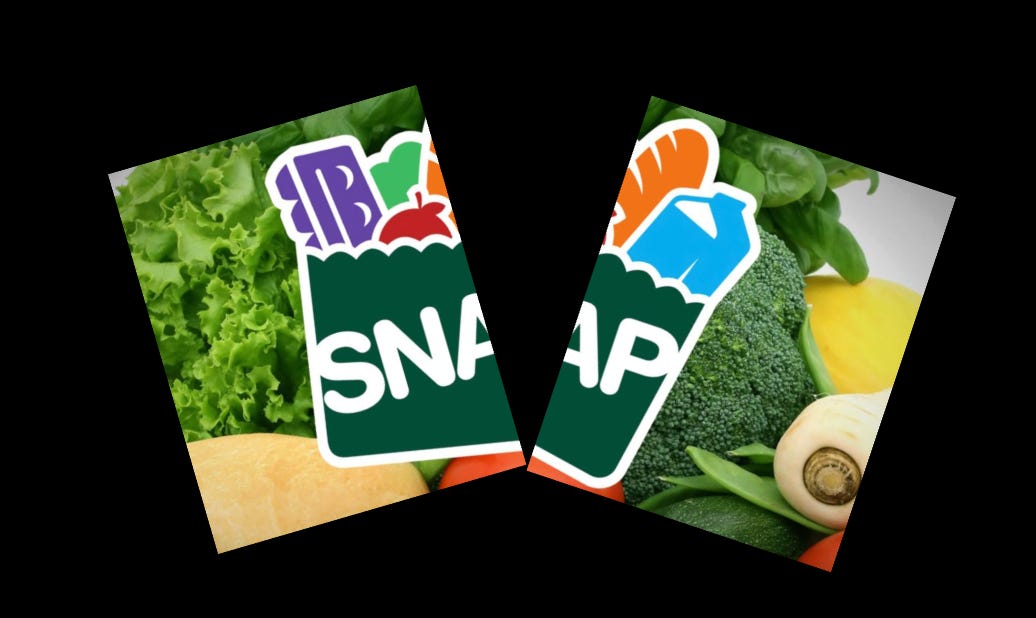Scott Rallies State in Bipartisan Bid to Unlock SNAP Emergency Funds
The current crisis stems from a failure in Washington to pass a budget or spending bill that includes funding for SNAP.
Governor Phil Scott has announced that Vermont is preparing to join a potential multi-state lawsuit against the federal government. The move comes as a federal funding impasse threatens to halt the Supplemental Nutrition Assistance Program (SNAP), known locally as 3SquaresVermont, which provides essential food benefits to over 63,000 Vermonters.
In a statement released Monday, Governor Scott said he has directed his administration to work with Attorney General Clark to support the legal action. This comes, according to the Governor, “in the absence of the federal government acting to ensure that millions of vulnerable Americans have access to the... benefits they desperately need.”
Understanding the Standoff: What Vermonters Need to Know
The Governor’s statement alludes to a critical breakdown at the federal level. Here is the context needed to understand the issue:
The SNAP program is federally funded but administered by individual states. This means Vermont manages the 3SquaresVT program and distributes the Electronic Benefit Transfer (EBT) cards, but the money for the benefits themselves comes from the federal budget.
The current crisis stems from a failure in Washington to pass a budget or spending bill that includes funding for SNAP. When this funding lapses, the federal government cannot send states the money to cover the benefits. This leaves states in an impossible position: they are responsible for running the program but are suddenly left without the funds to do so.
The proposed lawsuit aims to address this gap. Governor Scott noted there is “bipartisan support for a lawsuit seeking to require the federal government to release contingency funding it has available for emergencies.”
This legal strategy is not aimed at creating a new program, but at forcing the federal government to use emergency funds it already possesses to cover the benefits that Congress has failed to fund through the normal budget process.
The Human Impact in Vermont
The Governor’s office was clear about the stakes for Vermonters. The 63,000 residents who rely on 3SquaresVT include some of the state’s most vulnerable populations. According to the Governor’s statement, “These households include low-income families with children, veterans, older Vermonters, and individuals with disabilities.”
A disruption in benefits is not a distant problem; it would be felt almost immediately at grocery store checkouts and dinner tables across the state. Governor Scott warned that “the lack of federal SNAP funding will disrupt the lives of over 63,000 Vermonters and could cause real harm.”
For these families and individuals, SNAP benefits are a critical lifeline for food security. A sudden halt to the program could trigger an immediate hunger crisis, placing an enormous strain on local food shelves and community support systems that are already stretched thin.
The State’s Position: A Last Resort
Governor Scott’s statement frames the potential lawsuit as a necessary last resort. While states are “contemplating possible steps to support these vulnerable households,” the statement emphasizes that “even with state efforts, the lack of federal SNAP funding will disrupt... lives.”
The core of the issue is that states, including Vermont, do not have the budget to cover the massive, federally-funded program on their own. The multi-state lawsuit represents an attempt by governors from both parties to find a legal pathway to protect their residents from the consequences of the federal funding failure.
For Vermonters, the situation highlights the direct link between federal budget negotiations and daily life. The immediate path forward, as outlined by the Governor, is to pursue legal action to unlock contingency funds. The long-term solution, however, remains with the federal government to approve a stable, long-term funding source for the SNAP benefits that thousands of Vermonters rely on.



